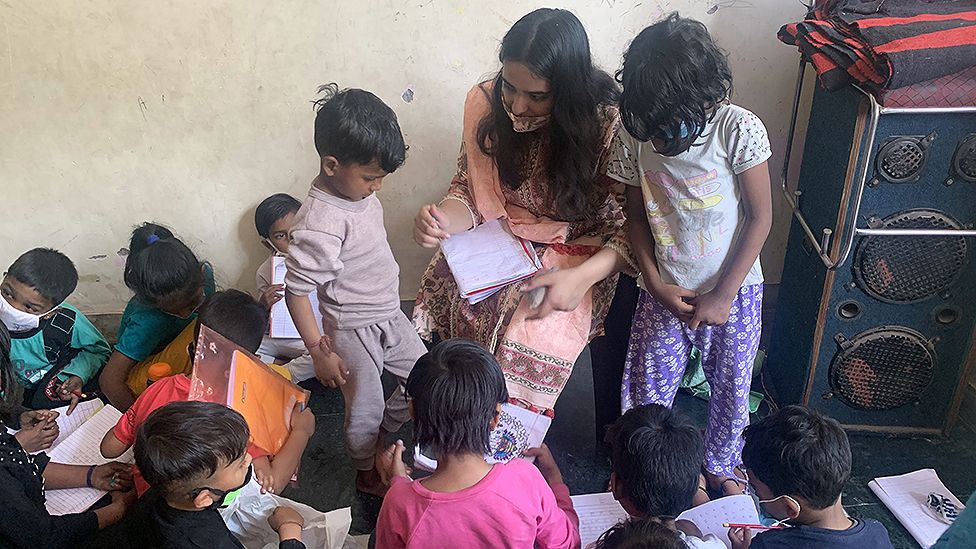The prolonged closure of schools in India is said to have led to catastrophic consequences for poor children, according to a recent survey.
Only 8% of the children sampled were studying online regularly and 37% were not studying at all, the survey found. Primary and upper-primary schools in India have been closed for 17 months to curb the spread of coronavirus.
The survey, supervised by leading economists, spoke to 1,400 children across India in August. Researchers focused on households in relatively deprived villages and slums, where children generally attend government-run schools.
"The picture that emerges from the survey is absolutely dismal, especially in rural areas," says the study, conducted by nearly 100 volunteers in 15 states and federally administered territories. The survey found that nearly half of the children sampled were unable to read more than a few words.
And few children were studying online: 24% in cities, and just 8% in villages.
One reason was a large number of these households had no smartphones - only about half of the households in the villages owned one. Even among those who did own a smartphone, only a third of the children were studying online in cities and about 15% in the villages. Only 9% of the children surveyed had their own phones.
Another major hurdle, especially in villages, was that schools were not sending online study material or the parents were not aware of it. More than 90% of underprivileged parents who were surveyed wanted schools to reopen as soon as possible.
India is among a handful of countries where primary schools have not reopened. Reetika Khera, one of the lead authors of the survey, said: "An all-out reopening might not be advisable for now, but asking children to attend schools in batches once or twice a week would be a good start."
